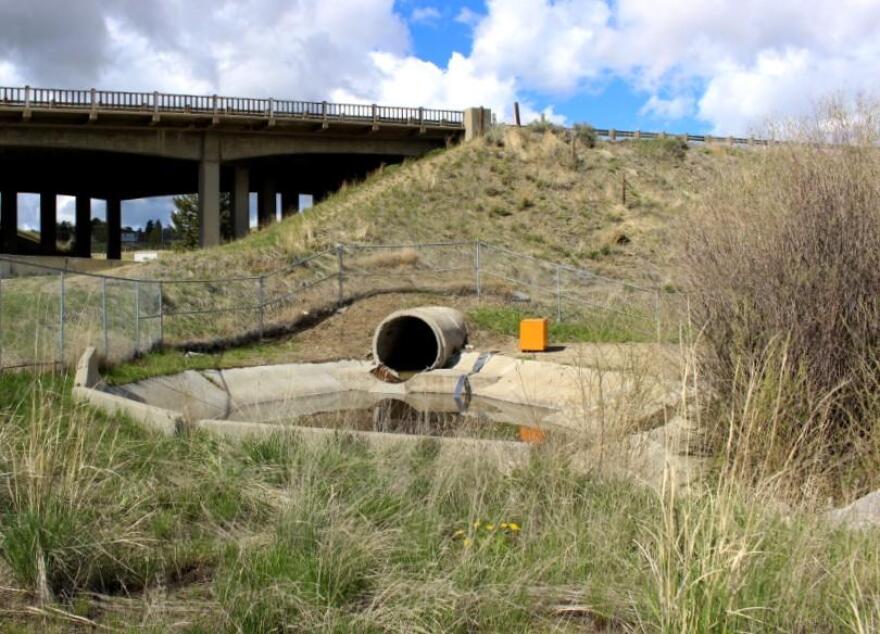A final deal signed by a federal judge this week outlining cleanup of century old mining waste in Butte means there’s going to be a flurry of work happening in the center of town.
U.S. District Judge Sam Haddon on Wednesday gave his final stamp of approval to an overarching Superfund cleanup deal for the Butte Hill and its headwater streams below.
The deal, or consent decree, is a massive contract between the Environmental Protection Agency, the state of Montana, Butte-Silver Bow County, and Atlantic Richfield, the former oil company on the hook for the historic mine waste cleanup which began back in the 1980s.
Jon Sesso, Butte’s Superfund coordinator, says at heart, it’s a roadmap, a blueprint for finishing the decades-long cleanup of the city and floodplain and ensuring that it’s taken care of forever.
"Getting this blueprint approved by the judge is just further testament to the fact that it’s a sound proposal, it outlines an effective, sustainable remedy, and I’m just really pleased that we can get on with the work now."

Most of the remaining cleanup actions will be centered on protecting Butte’s urban creeks, Silver Bow and Blacktail, from heavy metals lurking above and below ground.
Stormwater that washes metal-laden sediments off the steep Butte Hill has long been the biggest threat to the city’s little creeks. So in this new deal, Atlantic Richfield is going to build more basins that catch and hold stormwater, and drop out dirty sediments. It will also cap any leftover old mine dumps on the Hill, to prevent sediments from washing off it in the first place.
Polluted groundwater is also a menace to Butte’s streams, so AR is going to have to collect and treat it, permanently, and fix any gaps in the system. It has also agreed to remove the source of the groundwater contamination: tons of ancient mine tailings buried near the creeks.
For retired hydrogeologist Joe Griffin, who devoted his career to the Superfund cleanup, having a comprehensive deal that’s set in stone is a relief, and a reason to celebrate.
"Boy, for me, it’s like a 30 year yee haw!"
All in all, Atlantic Richfield plans to spend at least $150 million more on Butte’s Superfund cleanup. That amount includes all the remedy work outlined in the deal, a settlement with the state to get rid of mine waste and reclaim the Blacktail Creek area, and building a 120 acre park in the city’s industrial creek corridor.

AR’s local liability manager Josh Bryson says the details of that park still need to be hashed out with the county in a separate pact, but he says as an engineer "as a designer, as a resident and a father, I don’t think there’s another project I’d rather be working on. I truly think it’s going to be transformational."
Now that the consent decree has the judge’s greenlight, Butte’s core Superfund public health program is also kicking into a higher gear, under a separate but related EPA cleanup order.
In Walkerville, a hamlet above Butte, guys in hazmat suits recently crawled into the attic of an old miner’s cottage, then fired up a huge vacuum and sucked out all the poisonous dust.
Crews like this one search out heavy metal contamination in and around Butte homes, and where necessary, will clean up your house, attic or yard, for free.
Bankrolled by Atlantic Richfield and run by the county, the Residential Metals Abatement Program is one of the most critical parts of Butte’s Superfund cleanup.
Eric Hassler, who’s in charge of RMAP, says it’s now about to grow in both scope and scale.
"We are now rolling in schools and the play areas associated with schools, the high traffic areas of parks throughout the community, and any commercial building that has a residential component associated with it."
RMAP’s services will also now be available by request to about 75% of Butte-Silver Bow County outside of the boundaries of the Butte Superfund site.
Hassler says the EPA’s cleanup order will allow the program to expand more quickly and with more flexibility than a consent decree.
"I’m very excited, but we gotta learn to walk before we can run and we’re gonna approach it very systematically."
One thing that isn’t changing is the cleanup, or action, levels, for lead, arsenic and mercury. Hassler says the most recent Superfund health study indicates that on the whole, blood lead levels in Butte have declined dramatically since the 1990s, plateaued, and are now on par with other communities around the country. To Hassler, that means the levels are sufficient, and safe. The county’s program addresses soils, dust, and also lead paint and lead pipes.
"And it gives us more of a health-based approach, instead of a contamination based approach. If there’s a sick person residing at one of these residences, we have the ability to find the exposure source, even if it’s not related to mining contamination."
Now that both the cleanup order and consent decree have cleared the last procedural hurdles, Butte can expect years of intense construction and cleanup work happening in the creek corridors that run right through the center of town.
Josh Bryson with Atlantic Richfield says the new and improved Superfund remedy should be fully operational by 2028.
And while the company has its work cut out for it, this Superfund deal delivers the one thing money can’t buy: closure.
"You don't close the book, per se, right? But you know exactly now what's required of you," Bryson says.
Officials at the Environmental Protection Agency say Butte’s Superfund settlement will "ensure we meet our goal of beginning to delist this long standing site by 2024."
Copyright 2020 Montana Public Radio





